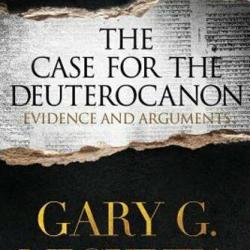
Luther and fellow “Reformation” leader Zwingli tried to settle their dispute about communion in Marburg in September of 1529. Unsurprisingly, they were unsuccessful. Luther continued to regard Zwingli as damned and no Christian, due to his denial of the Real Presence in the Eucharist. Protestants retain this internal disagreement to this day, along with profound differences on baptism. Anonymous woodcut from 1557 [public domain / Wikimedia Commons]
***
[this took place recently on Jerry Wall’s (public) Facebook page. He is a Methodist who works at a Baptist college as a philosophy professor. Jerry’s words will be in blue]
*****
The vast majority of Protestants are united in fundamental doctrine as can be easily seen by comparing official doctrinal confessions of Presbyterians, Anglicans, etc.
Is baptism a fundamental doctrine?
Do you deny that in terms of classical Protestantism (Anglican, Presbyterian, Methodist, Lutheran) that there is large agreement in terms, not only of core creedal doctrine, but also Protestant distinctives? The issue of discipline is another matter, and liberal Protestantism, like Romanism, tolerates all sort[s] of diversity.
I broadly agree, but there are some serious disagreements in many particulars: especially on baptism, which is why I brought it up. If you deny that it is “fundamental” then I think you have serious biblical problems. If it is fundamental, then it is a fact that there are five competing schools in Protestantism, and the “perspicuity” of Scripture has never resolved that. And then your statement, “united in fundamental doctrine” would be false and in need of modification.
Rome does not share all that is a broad matter of consensus among Protestants, like justification, assurance, etc.
To the contrary, I think Arminians and Wesleyans are closer to us in this regard than they are to Calvinists, who deny free will, whereas they (and us and the Orthodox) believe that true apostasy is possible. We believe in sola gratia, just as you do.
Wesleyans, Methodists, many Anglicans, and even some Lutherans are closer to us on the question of the relationship of faith and works, than they are to Calvinists or even the sort of fundamentalist who would deny Lordship salvation.
Assurance? Are you kidding me? Again, Arminians are far more like us than like Calvinists. And we have what is called moral assurance. I have felt every bit as assured of salvation as a Catholic, as I ever did as an Arminian evangelical. We simply say — as the Bible does — that certain very serious (mortal) sins will land one in hell if unrepented of.
So if, e.g., one dies while in bed with a prostitute, the Calvinist would say he obviously never was saved. The Arminian would either agree or say that he fell away. We would say that he may or may not have been in God’s grace in the past, but that NOW he clearly is not (i.e., he is in mortal sin and has separated himself from God), and moreover, he placed himself in grave danger of hellfire, since Scriptures say that fornicators and adulterers do not inherit the kingdom of God.
I think it would be much more accurate to observe that what all Protestants greatly have in common is a denial of the Catholic distinctives (Mary, papacy, communion of saints, an infallible Church, etc.). But even then it’s not unanimous. Lutherans and Anglicans pray for the dead (C. S. Lewis believed in purgatory, and Wesley believed in some sort of intermediate state). Anglo-Catholics agree with us on several matters. Lutherans believe in the Real Presence, in a way not too far from our view).
That said, there is profound commonality, in the joint rejection of distinctively Catholic doctrines.
But when it comes to your own internal disagreements, that is something else altogether. Baptism is the classic example of non-unity in important matters (not just the so-called “secondary” ones), which is why I have always highlighted it as an example of a disproof of the Protestant authority principle and of perspicuity of Scripture in (miserable) application.
Now please answer my question, since I took my time to carefully answer yours. ![]()
[after many many hours]: To your question Dave, no I do not think baptism is fundamental in the way Trinity, incarnation, Resurrection and atonement are.
Scripture directly ties baptism to salvation. I fail to see how that is not fundamental doctrine:
Acts 2:38 (RSV) And Peter said to them, “Repent, and be baptized every one of you in the name of Jesus Christ for the forgiveness of your sins;
1 Peter 3:18-21 For Christ also died for sins once for all, the righteous for the unrighteous, that he might bring us to God, being put to death in the flesh but made alive in the spirit; in which he went and preached to the spirits in prison, who formerly did not obey, when God’s patience waited in the days of Noah, during the building of the ark, in which a few, that is, eight persons, were saved through water. Baptism, which corresponds to this, now saves you, not as a removal of dirt from the body but as an appeal to God for a clear conscience, through the resurrection of Jesus Christ,
Acts 22:16 And now why do you wait? Rise and be baptized, and wash away your sins, calling on his name.’
Romans 6:3-4 Or don’t you know that all of us who were baptized into Christ Jesus were baptized into his death? We were therefore buried with him through baptism into death in order that, just as Christ was raised from the dead through the glory of the Father, we too may live a new life. (cf. Romans 8:11, 1 Cor 15:20-23, Col 2:11-13)
1 Corinthians 6:11 And such were some of you. But you were washed, you were sanctified, you were justified in the name of the Lord Jesus Christ and in the Spirit of our God.
Mark 16:16 He who believes and is baptized will be saved; but he who does not believe will be condemned.
Titus 3:5 he saved us, not because of deeds done by us in righteousness, but in virtue of his own mercy, by the washing of regeneration and renewal in the Holy Spirit,
John 3:5 Jesus answered, “I tell you the truth, unless a man is born of water and of the Spirit, he cannot enter the kingdom of God. (cf. 3:3: “unless a man is born again …”)
Protestants can’t even figure out whether it regenerates or not. Some say it does; others deny it. Martin Luther certainly agreed baptism is central doctrine: right in the center of soteriology:
Little children . . . are free in every way, secure and saved solely through the glory of their baptism . . . Through the prayer of the believing church which presents it, . . . the infant is changed, cleansed, and renewed by inpoured faith. Nor should I doubt that even a godless adult could be changed, in any of the sacraments, if the same church prayed for and presented him, as we read of the paralytic in the Gospel, who was healed through the faith of others (Mark 2:3-12). I should be ready to admit that in this sense the sacraments of the New Law are efficacious in conferring grace, not only to those who do not, but even to those who do most obstinately present an obstacle.
(The Babylonian Captivity of the Church, 1520, from the translation of A. T. W. Steinhauser, Philadelphia: Fortress Press, rev. ed., 1970, 197)
Likewise, in his Large Catechism (1529), Luther wrote:
Expressed in the simplest form, the power, the effect, the benefit, the fruit and the purpose of baptism is to save. No one is baptized that he may become a prince, but, as the words declare [of Mark 16:16], that he may be saved. But to be saved, we know very well, is to be delivered from sin, death, and Satan, and to enter Christ’s kingdom and live forever with him . . . Through the Word, baptism receives the power to become the washing of regeneration, as St. Paul calls it in Titus 3:5 . . . Faith clings to the water and believes it to be baptism which effects pure salvation and life . . . When sin and conscience oppress us . . . you may say: It is a fact that I am baptized, but, being baptized, I have the promise that I shall be saved and obtain eternal life for both soul and body . . . Hence, no greater jewel can adorn our body or soul than baptism; for through it perfect holiness and salvation become accessible to us . . .
(From edition by Augsburg Publishing House (Minneapolis), 1935, sections 223-224, 230, pages 162, 165)
All the major Lutheran denominations hold to baptismal regeneration. According to Mead’s Handbook of Denominations (I have a 1970 ed.), Lutherans accept Luther’s Small Catechism and Large Catechism, both of which clearly teach baptismal regeneration. The Smalcald Articles were also written by Luther. The Formula of Concord, also accepted by most if not all Lutheran bodies, states in its Article XII, section on “Erroneous Articles of the Schwenkfelders”:
“We reject and condemn these errors . . .: 3. That the water of Baptism is not a means whereby the Lord God seals the adoption of sons and works regeneration.”
Of course, to get out of this dilemma, you can always argue that Lutherans are not Protestants, or that Luther wasn’t the founder of Protestantism. ![]()
[replying to a fellow Catholic] This is a very straightforward internal inconsistency of the Protestant position. It’s always made them squirm, in the 21 years that I’ve been using this argument. I had no expectation that Jerry’s case would be any different. A difficulty is a difficulty . . .
You boys are all so amusing. I am neither squirming nor facing even the hint of a dilemma. I believe, as Jesus said, that his disciples should be baptized in the name of the Father, Son and Holy Spirit, that baptism is part of confessing our faith in Christ. The fact that baptism is tied to salvation in this sense hardly makes a particular theology of baptism “fundamental” in the way Trinity, incarnation, etc are. Your Roman attempts to generate a dilemma are entirely lost on me.
Yeah, I know. But they are not lost on all observers. You know as well as I do, that regeneration is central to soteriology, and that Lutherans and several other Protestants believe in baptismal regeneration. Soteriology is central. You said above that “justification” was one of these “fundamental” doctrines. Insofar as justification has to do with salvation, Luther ties it directly together with baptism: “saved solely through the glory of their baptism”.
Luther himself would no more allow dissent on this question than on the Eucharist, and he routinely regarded folks who dissented on the Eucharist as not only not Protestants, but not Christians (and damned).
And all those who think a particular theology of baptism is essential for salvation, well, they should be Lutherans or Romans, or whoever else thinks their way is the only way. But I am none of the above, and not exercised with this issue.
It’s irrelevant what your own opinion is, in this particular discussion. Nice try at non sequitur diversion there. You were making claims having to do with the alleged unity of all Protestants on the “fundamental” doctrines. I think I have shown a very serious flaw in that claim.
Luther, the very founder of Protestantism, thought that believers in adult [and merely symbolic] baptism were seditious heretics, worthy of death, and that those who denied the Real Presence in the Eucharist were non-Christian reprobates on their way to hell. We know this from what he wrote about the Anabaptists (expressly calling for their execution) and about people like Zwingli.
[I hold neither of his views there, just so there is no misunderstanding]
But he would have regarded me as a fellow Christian: albeit one who holds to several serious errors, in his eyes. He didn’t call for the killing of Catholics.
If you are to make such claims regarding other Protestants, then you need to know what they believe and why they believe it (and in Luther’s case, how he acted, based on his deeply held beliefs).
Yes, neither baptism, nor any theology of baptism is fundamental to the “hierarchy” of the faith “in the way Trinity, incarnation, resurrection, atonement are.” Of central importance, yes; fundamental like Trinity, etc, no.
So now you have a hierarchy of three levels of doctrine?:
1. “Fundamental”: Trinity, incarnation, resurrection, atonement.
2. “Central”: stuff like baptism; who knows what else . . .
3. Secondary: resigned to de facto relativism, if denominations are allowed to freely contradict each other on these doctrines (as if that is a good and helpful thing for the flock, trying to determine theological truth).
The problem with this is that all Christians (including we Catholics and Orthodox) agree on #1. Therefore, those doctrines have little or no bearing on the discussion of Catholic-Protestant differences. That means that if we are talking about those differences, we have to talk on the level of the doctrines in #2, including baptism. I’ve just shown how Protestants do not agree on baptism, and you concede that it is “central”, if not “fundamental.”
You have also conceded that a Luther and Lutherans accept a “theology of baptism is essential for salvation.” This is my point (thanks very much). Salvation is a fundamental thing in Christian theology, and here you have demonstrated (agreeing with me) that Lutherans have more in common with Catholics than with their fellow Protestants, with regard to regenerating baptism.
This rather undercuts (if not outright defeats) your earlier claim: “Rome does not share all that is a broad matter of consensus among Protestants, like justification, assurance, etc.”
Now you have to make a huge exception for the founder of Protestantism, and the first Protestant denomination: Lutherans. And there are others, like the Campbellite believers in adult baptismal regeneration (Church of Christ, Disciples of Christ), and large sub-groups of more traditional Anglicans and Methodists.
It’s interesting that you classify baptism as a “central” doctrine, yet do now acknowledge that you have backed yourself into a corner here. Most Protestants, confronted with this dilemma, opt for regarding baptism as a “secondary doctrine”: where it doesn’t matter if several internally contradictory views simultaneously exist and are tolerated within Protestantism.
I do compliment you, at least, for your originality. ![]()
I acknowledge nothing of the sort. As I said, this does not exercise me. These sort of Roman apologetic games work only on people who require your degree of doctrinal agreement to think their baptism is valid or some such thing. Or think their salvation requires such a theology. I utterly reject both those notions.
It’s not a “game” but rather, a serious matter of logic and straightforward honesty about factual internal disagreements among Protestants. The question at hand is not the theological one of “what is true in x, y, z areas of theology?” but rather, the sociological one of “how much unity do Protestants truly have?”
None of this is fatal to Protestantism, so you need not fear conceding it. It simply casts doubt on particular Protestant claims of internal unity over against Catholicism: such as ones you yourself have made in this thread.
Indirectly, it does have relevance, however, to the theological issue of the ability of Scripture alone to resolve all important disputes (the issue of perspicuity of Scripture). Do the facts of Protestant development support perspicuity or not?
I’ve wasted far more time on this than it is worth. Perspicuity pertains to what is essential for salvation. As I have now said about ten times, a particular theology or theory of baptism is not essential for salvation. The internal unity of evangelicalism with respect to core orthodoxy is greater than in RCC. The fact that RCC has an official theology of baptism that does not offset this reality.
We’re not debating whether baptism is essential for salvation, but nice try at (ten times over) obfuscation. This is a sociological dispute about substantiated denominational facts. Luther (i.e., the founder of Protestantism) thought it was essential to salvation (and so do Lutherans now). That’s the point: not what you happen to believe about it. Thanks for your wasted time. ![]()
Catholic Nick LaBanca added: I also find it interesting how he hasn’t explained where the “three levels of doctrine” come from. I must’ve missed that place in the New Testament where the inspired writer(s) details that all doctrine be divided into “fundamental”, “central”, and “secondary” categories. I also must’ve missed the list that puts each “doctrine” in each of those specific categories.
60] Therefore let it be decided that Baptism always remains true, retains its full essence, even though a single person should be baptized, and he, in addition, should not believe truly. For God’s ordinance and Word cannot be made variable or be altered by men. 61] But these people, the fanatics, are so blinded that they do not see the Word and command of God, and regard Baptism and the magistrates only as they regard water in the brook or in pots, or as any other man; and because they do not see faith nor obedience, they conclude that they are to be regarded as invalid.
Beyond that, Luther would say that professing Christians need to accept the Creed (“we acknowledge one baptism for the remission of sins”), and that Lutherans accept Lutheran theology, as most easily presented in his own Large and Small Catechisms, including the theology of baptism. One might contend that the two elements come together in this passage from his Large Catechism (“Holy Baptism”; sections 23-25):
23] In the second place, since we know now what Baptism is, and how it is to be regarded, we must also learn why and for what purpose it is instituted; that is, what it profits, gives, and works. And this also we cannot discern better than from the words of Christ above quoted: He that believeth and is baptized shall be saved. 24] Therefore state it most simply thus, that the power, work, profit, fruit, and end of Baptism is this, namely, to save. For no one is baptized in order that he may become a prince, but, as the words declare, that he be saved. 25] But to be saved, we know, is nothing else than to be delivered from sin, death, and the devil, and to enter into the kingdom of Christ, and to live with Him forever.
A little later, he writes:
38] Thus we have these three parts which it is necessary to know concerning this Sacrament, especially that the ordinance of God is to be held in all honor, which alone would be sufficient, though it be an entirely external thing, like the commandment, Honor thy father and thy mother, which refers to bodily flesh and blood. Therein we regard not the flesh and blood, but the commandment of God in which they are comprehended, and on account of which the flesh is called father and mother; so also, though we had no more than these words, Go ye and baptize, etc., it would be necessary for us to accept and do it as the ordinance of God. 39] Now there is here not only God’s commandment and injunction, but also the promise, on account of which it is still far more glorious than whatever else God has commanded and ordained, and is, in short, so full of consolation and grace that heaven and earth cannot comprehend it. 40] But it requires skill to believe this, for the treasure is not wanting, but this is wanting that men apprehend it and hold it firmly. 41] Therefore every Christian has enough in Baptism to learn and to practise all his life; for he has always enough to do to believe firmly what it promises and brings: victory over death and the devil, forgiveness of sin, the grace of God, the entire Christ, and the Holy Ghost with His gifts.
Paul Althaus (The Theology of Martin Luther), states: “His doctrine of baptism is basically nothing else than his doctrine of justification in concrete form” (p. 356). It’s almost like Althaus was quoting some of my words above: “Insofar as justification has to do with salvation, Luther ties it directly together with baptism.”
But on the other hand, he seemed to not be hostile to Calvin, as he was to Zwingli, Oecolampadius, the sacramentarians, Carlstadt, and Anabaptists. Also, he acknowledged Catholic baptism as valid (as did Calvin), so it’s not likely that he would think that Calvinist baptism was not. But for him the waters of baptism had inherent power, which was the primary factor involved.

















